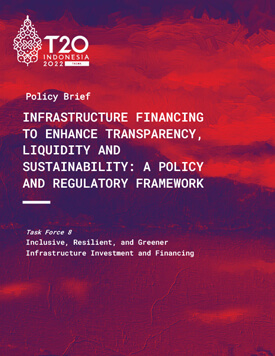Author: Rym Ayadi
Amidst global challenges and uncertainties, low-income countries (LICs) and lower middle-income countries (LMICs) will continue borrowing and pushing debt levels to further heights, in order to alleviate social costs and to jump-start the recovery phase, which is expected to be more inclusive and green. In the absence of a comprehensive financing infrastructure framework to develop their economies, these countries will not be able to build inclusive, green economic resilience and, hence, continue the payment of the debt stock they have.In 2021, in a paper1 for the T20 in Italy, we proposed and described an innovative public-private partnership (PPP) financing framework that decouples financial and execution risk, which relies on either domestic or international financial markets to finance infrastructure development, with guarantees from the LMICs and partial guarantees from international financial development institutions with a higher rating, to reduce the cost of financing. This framework is described as the Ready for Audit Framework (RAF), the essence of which is to monitor the performance of the executing entity by an independent reputable audit firm and to disclose progress to the investors and guarantor(s).
The proposal of this new paper is to outline the pillars of the regulatory framework (policy, tools and institutions) that would regulate a new market for financing infrastructure development with enhanced transparency, liquidity and sustainability. The domestic and international dimensions will be highlighted, introducing the two-tiered regulatory framework.


